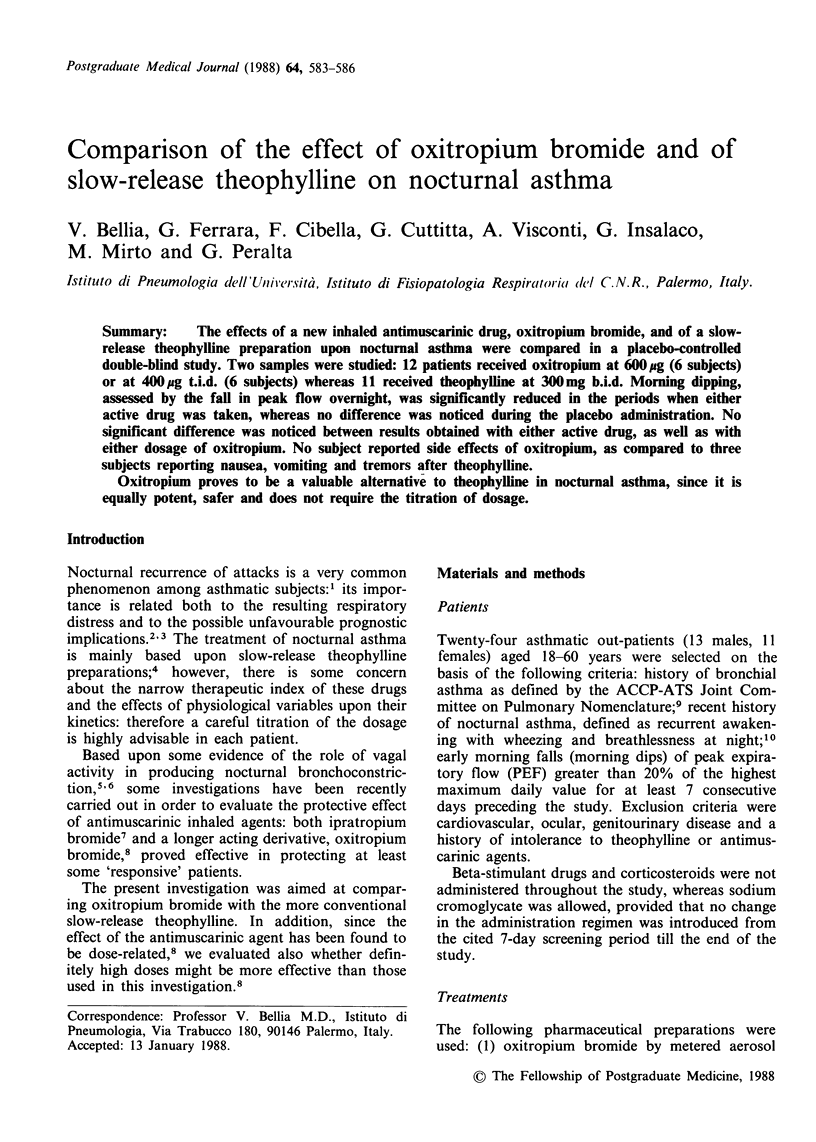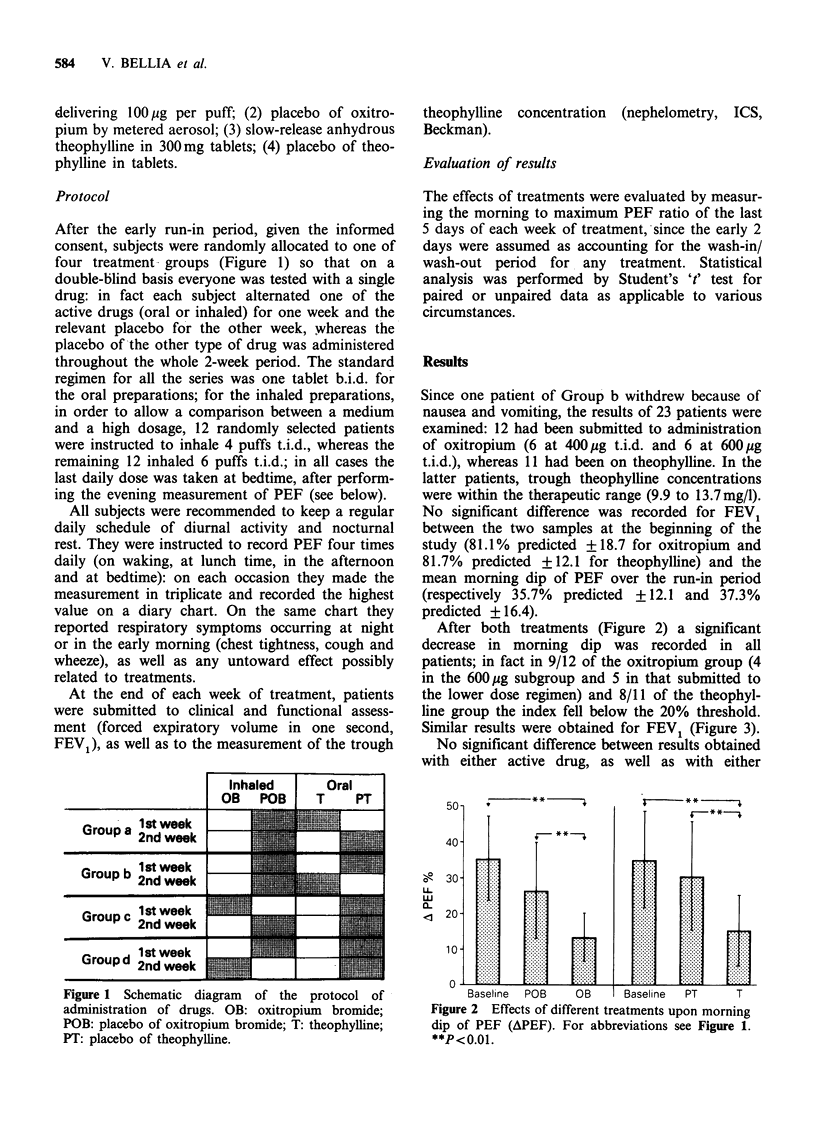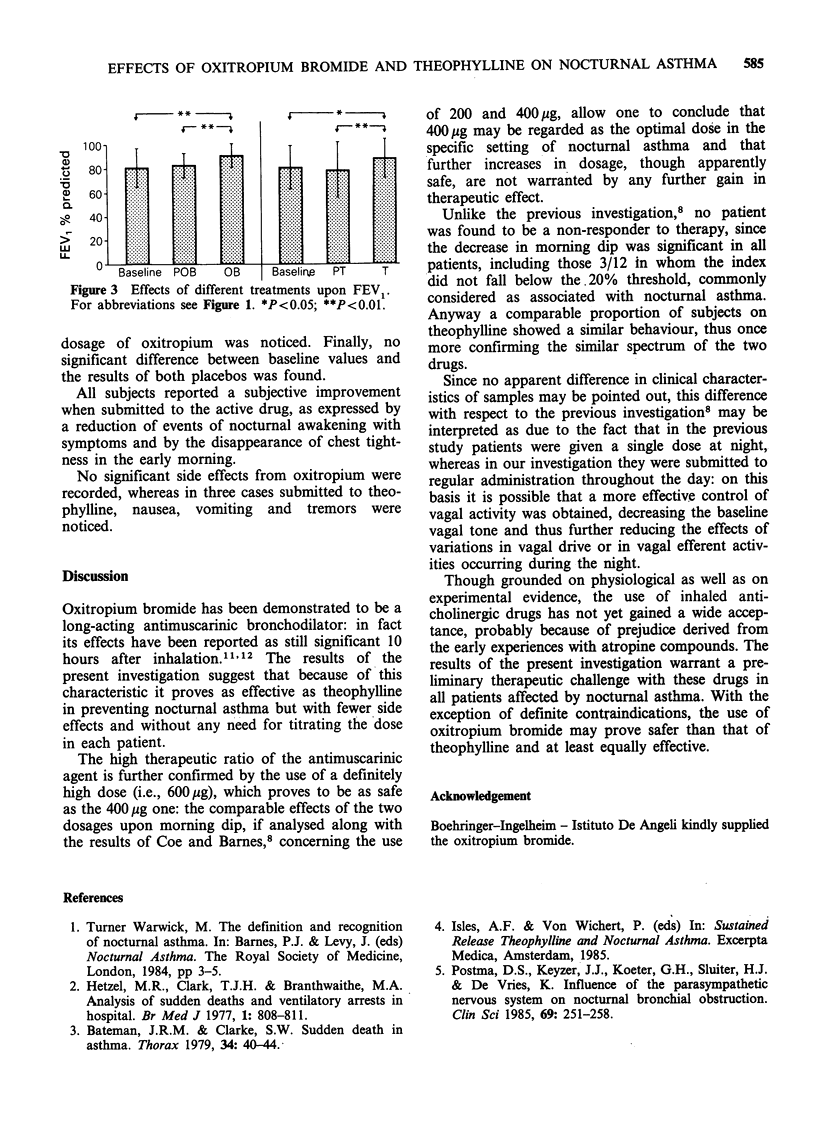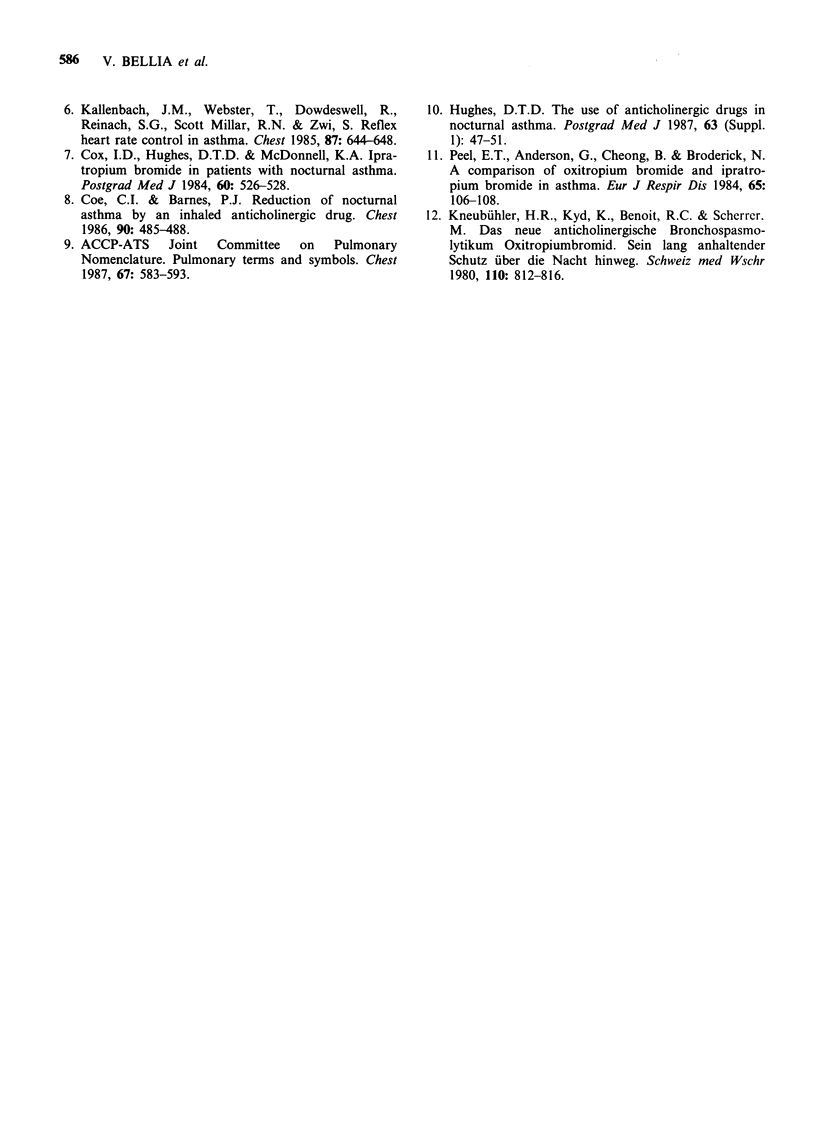Abstract
The effects of a new inhaled antimuscarinic drug, oxitropium bromide, and of a slow-release theophylline preparation upon nocturnal asthma were compared in a placebo-controlled double-blind study. Two samples were studied: 12 patients received oxitropium at 600 micrograms (6 subjects) or at 400 micrograms t.i.d. (6 subjects) whereas 11 received theophylline at 300 mg b.i.d. Morning dipping, assessed by the fall in peak flow overnight, was significantly reduced in the periods when either active drug was taken, whereas no difference was noticed during the placebo administration. No significant difference was noticed between results obtained with either active drug, as well as with either dosage of oxitropium. No subject reported side effects of oxitropium, as compared to three subjects reporting nausea, vomiting and tremors after theophylline. Oxitropium proves to be a valuable alternative to theophylline in nocturnal asthma, since it is equally potent, safer and does not require the titration of dosage.
Full text
PDF



Selected References
These references are in PubMed. This may not be the complete list of references from this article.
- Bateman J. R., Clarke S. W. Sudden death in asthma. Thorax. 1979 Feb;34(1):40–44. doi: 10.1136/thx.34.1.40. [DOI] [PMC free article] [PubMed] [Google Scholar]
- Coe C. I., Barnes P. J. Reduction of nocturnal asthma by an inhaled anticholinergic drug. Chest. 1986 Oct;90(4):485–488. doi: 10.1378/chest.90.4.485. [DOI] [PubMed] [Google Scholar]
- Cox I. D., Hughes D. T., McDonnell K. A. Ipratropium bromide in patients with nocturnal asthma. Postgrad Med J. 1984 Aug;60(706):526–528. doi: 10.1136/pgmj.60.706.526. [DOI] [PMC free article] [PubMed] [Google Scholar]
- Hetzel M. R., Clark T. J., Branthwaite M. A. Asthma: analysis of sudden deaths and ventilatory arrests in hospital. Br Med J. 1977 Mar 26;1(6064):808–811. doi: 10.1136/bmj.1.6064.808. [DOI] [PMC free article] [PubMed] [Google Scholar]
- Hughes D. T. The use of anticholinergic drugs in nocturnal asthma. Postgrad Med J. 1987;63 (Suppl 1):47–51. [PubMed] [Google Scholar]
- Kallenbach J. M., Webster T., Dowdeswell R., Reinach S. G., Millar R. N., Zwi S. Reflex heart rate control in asthma. Evidence of parasympathetic overactivity. Chest. 1985 May;87(5):644–648. doi: 10.1378/chest.87.5.644. [DOI] [PubMed] [Google Scholar]
- Kneubühler H. R., Kyd K., Benoit R. C., Scherrer M. Das neue anticholinergische Bronchospasmolytikum Oxitropiumbromid. Sein lang anhaltender Schutz über die Nacht hinweg. Schweiz Med Wochenschr. 1980 May 24;110(21):812–816. [PubMed] [Google Scholar]
- Peel E. T., Anderson G., Cheong B., Broderick N. A comparison of oxitropium bromide and ipratropium bromide in asthma. Eur J Respir Dis. 1984 Feb;65(2):106–108. [PubMed] [Google Scholar]
- Postma D. S., Keyzer J. J., Koëter G. H., Sluiter H. J., De Vries K. Influence of the parasympathetic and sympathetic nervous system on nocturnal bronchial obstruction. Clin Sci (Lond) 1985 Sep;69(3):251–258. doi: 10.1042/cs0690251. [DOI] [PubMed] [Google Scholar]


